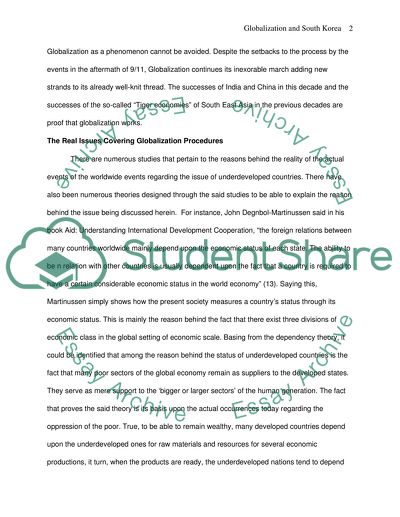Cite this document
(“Globalization and South Korea Essay Example | Topics and Well Written Essays - 2500 words”, n.d.)
Retrieved from https://studentshare.org/miscellaneous/1530823-globalization-and-south-korea
Retrieved from https://studentshare.org/miscellaneous/1530823-globalization-and-south-korea
(Globalization and South Korea Essay Example | Topics and Well Written Essays - 2500 Words)
https://studentshare.org/miscellaneous/1530823-globalization-and-south-korea.
https://studentshare.org/miscellaneous/1530823-globalization-and-south-korea.
“Globalization and South Korea Essay Example | Topics and Well Written Essays - 2500 Words”, n.d. https://studentshare.org/miscellaneous/1530823-globalization-and-south-korea.


